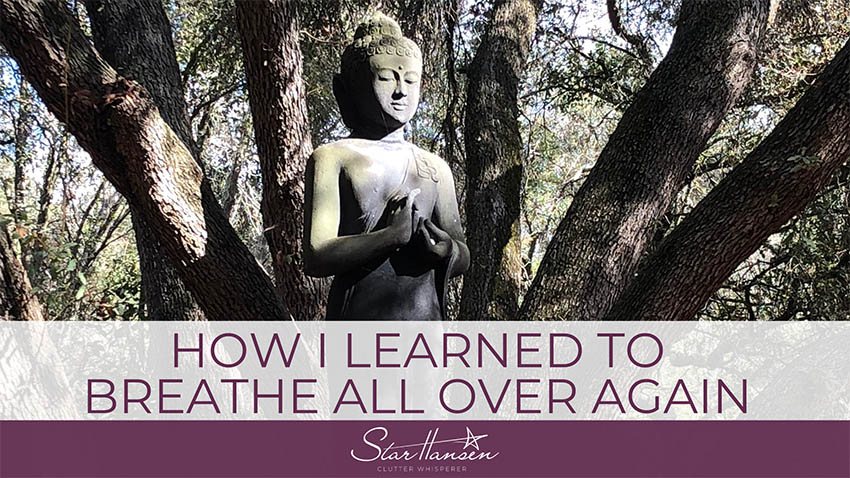How I Learned to Breathe All Over Again
Where to begin? Well, here. I recently turned 40 and ushered in the new decade with a blissful retreat to former Buddhist monk Thich Nhat Hanh’s Deer Park Monastery in Southern California. It is a peaceful place set among endless sunshine, winding roads and rolling hills.
I was away for 7 days and when I returned it took me more than 2 weeks to dial back into the rhythm of regular life. I felt completely drunk with zen. It was as if the whole world was moving 3 times as fast as I was. It made my head spin! I never before understood this phenomenon when friends or family members shared similar spiritual experiences. But it’s a real thing.
The Bells that Brought Me Home
The retreat was a time for me to reflect and restore. I began to peel away the layers I’d spent years building around my heart each time I’d fallen in, and let go of love. It was a time and a place for me to reckon with myself. I felt that I came home to myself. And the glorious, long tolls of the giant bell the monks rang each day woke me up and brought me home.
As residents at the retreat, we were supposed to stop wherever we were and whatever we were doing anytime we heard a bell toll. The goal was to allow the bell chimes to bring us home to ourselves by being present and breathing with intention. Each time the bells rang I recited:
Listen. Listen; this wonderful noise brings me back to myself. Rember to breathe.
For example, the monks took turns ringing the bell every morning at 5 a.m. to prepare us for our first meditation at 5:45 a.m. Each morning the monk ringing the bell would chant as he rang. But the first morning I awoke at the Monastery I was in for a surprise. The bell rang, and rang and rang… for 30 minutes! As enchanting as the experience was listening to its musical toll with my eyes closed, it was also somewhat strange. This kind of wakeup call was unlike any I’d ever experienced. I was anxious the entire time. I was thinking how do you get anywhere on time when you have to stop to listen, breathe and chant for 30 minutes?
So, I asked a nun about the morning bell. She started laughing the adorable way that I discovered that nuns laugh. She informed me that I only had to be still and mindful during the first 12 chimes, then I could move about my day. After that, the bell tolls felt like a refreshing taste of water. I would envision ocean waves washing over me each time I heard the satisfying sound.
A Great Awakening
The bell tolls were such an awakening for me. Of course, there were times that the bell rang and it wasn’t convenient to stop what I was doing. It wasn’t convenient to shift into deep breathing. Yet many other times I felt so grateful to take those deep, restorative breaths because the act of breathing with intention made me realize how much tension I was holding in my body. The breathing helped me let go of that tension and land, grounded, in my body.
The experience of breathing through the sound of the bells was a sensation I wanted to bring home with me.
Moreover, what was most profound about the bell tolls at the Monastery was that the experience was not confined to a particular day or occasion. The round echo of the bell was woven into daily life. It wasn’t even discussed much. It was truly something that became second nature as breathing. Which for me was delightful–euphoric, even.
Furthermore, what was important to me about returning to my beautiful home, serene in its own right, was to bring something practical and tangible back with me. The simple, meditative practice of breathing in solitude with intention was exactly what I needed to learn while away.
You see, this is what I’ve always wanted from my spiritual practices. I always wanted my spiritual sensibility to be so much a part of my inner being that it lives and breathes in. I want it to be in my moment-to-moment everyday life. Sometimes we have to remember to breathe.
Keep following my journey for more insights on spirituality, personal growth and the psychology behind our attachment to things.





